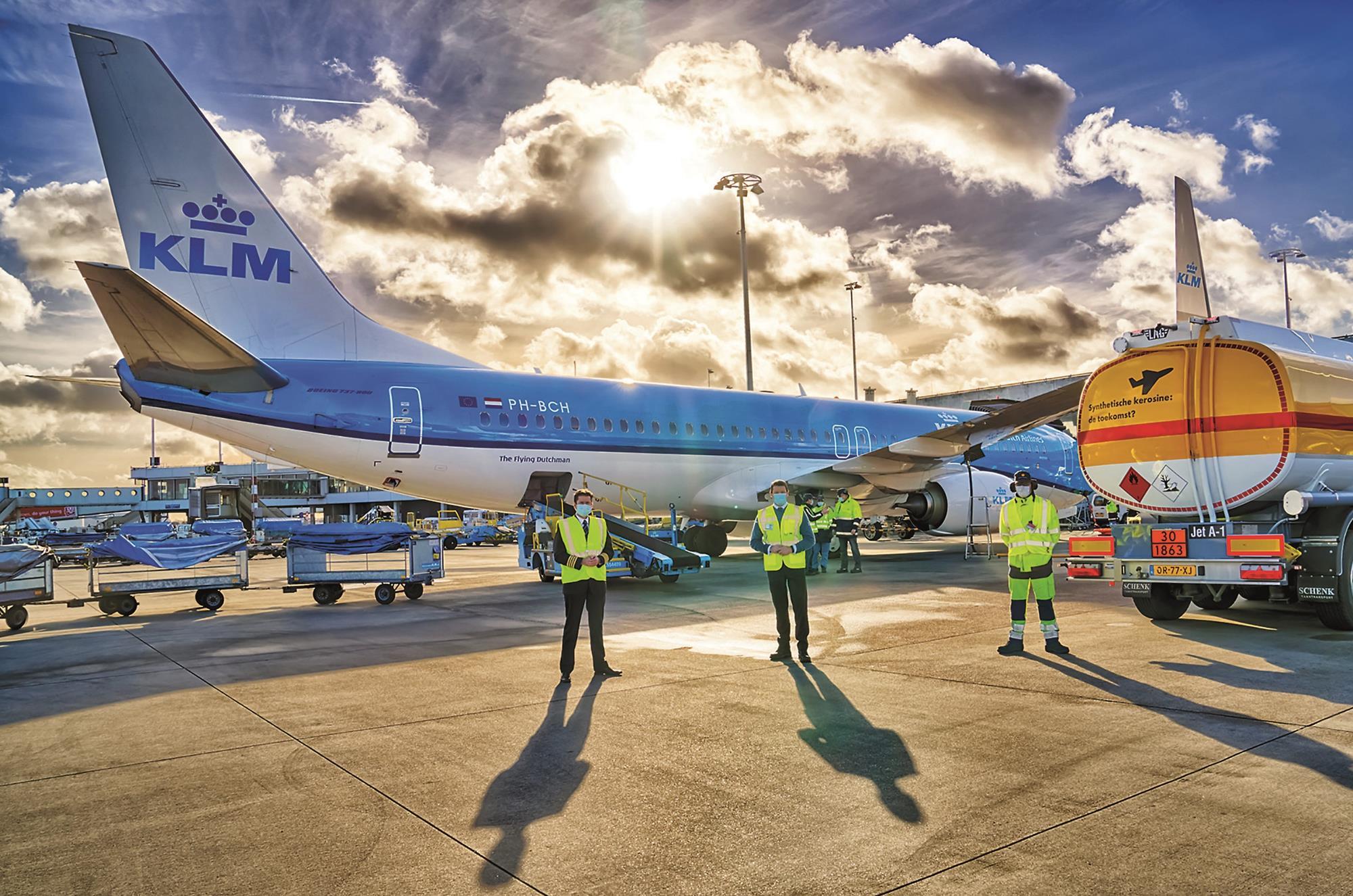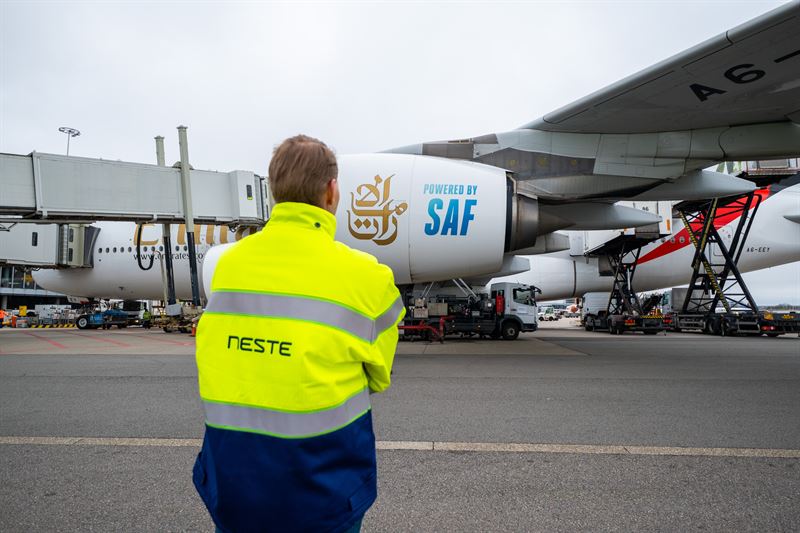European airports start putting out sustainable aviation fuel
Aviation fuel suppliers at airports in the European Union (EU) and the United Kingdom have begun to deliver a part of sustainable aviation fuel (SAF) to meet with new laws that went into effect at the beginning of this year. SAF can be made from leftover cooking oil, municipal trash, or hydrogen, as long as it does not come from fossil fuels.

Flights leaving from Europe must use sustainable aviation fuel (SAF)
According to the new standards, more than 350 airports in the EU and UK must deliver SAF-blended aviation fuel at a 2% rate for aircraft departing from EU and UK airports beginning January 1. By 2030, the blend will reach 10% in the UK and 6% in the EU. By 2050, SAF’s share of aviation fuel at EU airports will rise to 70%.
The law represents a new step in the energy revolution, with countries tightening curbs on aviation greenhouse gas emissions in order to achieve looming decarbonization targets. Carbon credit prices are also projected to climb in the future years, making pollution more expensive.
The SAF rule in Europe comes at a critical juncture for the energy transition, as support for net-zero emissions ambitions dwindles in many nations.
Benefits of Using sustainable aviation fuel (SAF)
“The regulatory mandate provides investor confidence and a clear market opportunity, which is a driving force behind the introduction of a fundamentally new product into the aviation fuel market,” stated Eirik Pitkethly, BP’s vice president of regulatory relations for bioenergy.
Some effects of utilizing sustainable aviation fuel (SAF)
Last year, several SAF production projects were abandoned or postponed due to exorbitant costs or a scarcity of raw materials. For example, oil company Shell halted development of a planned biofuel factory in Rotterdam, Netherlands, in July 2024, citing bad market conditions.
According to Wood Mackenzie’s study, over 2 million tonnes of annual SAF production capacity had been scrapped or postponed through 2024.
“The reasons cited were challenging market conditions, a lack of competitively priced sustainable feedstock supply, and changing strategic priorities,” stated Ozzy Jegunma, senior research analyst at Wood Mackenzie.
According to the consultant, the price of SAF derived from spent cooking oil in northwest Europe will remain three times higher than that of standard jet fuel by 2030.

Airfares will rise if SAF is deployed
Monika Rybakowska, policy director at EU Airlines for Europe, stated that the airline industry is currently in a “learning year” as it adapts to SAF. But she is also concerned that prices would rise as the expense of complying with SAF restrictions is passed on to consumers.
According to UK government analysis, the new rules could increase the average one-way cost by £9.40 by 2040.
Fares might rise by £37.80 if there is insufficient SAF. In that instance, the government might swiftly reconsider the ASF compliance standards to avoid large fare hikes.
This year, SAF production is estimated to account for 0.7% of total aviation fuel supply. The tiny SAF production shows the long and tough road ahead for airlines seeking to attain Net-Zero status by 2050.
Some perspectives on using SAF
The International Air Transport Association (IATA) estimates that between 3,000 and 6,500 SAF manufacturing sites are required to enable the aviation sector achieve its Net-Zero target, at a cost of around $128 billion per year.
Tim Alderslade, CEO of the lobby group Airlines UK in the United Kingdom, believes that with the appropriate policies in place, the impact of SAF restrictions on passenger airfares may be mitigated.
After receiving concerns that the requirement was too tough to meet, the UK government began adjusting laws requiring carmakers to create a set number of electric vehicles.
Learn More:
Enhance Public Awareness About Aviation Safety 2024
Freight service between Washington, USA, and Ho Chi Minh City

